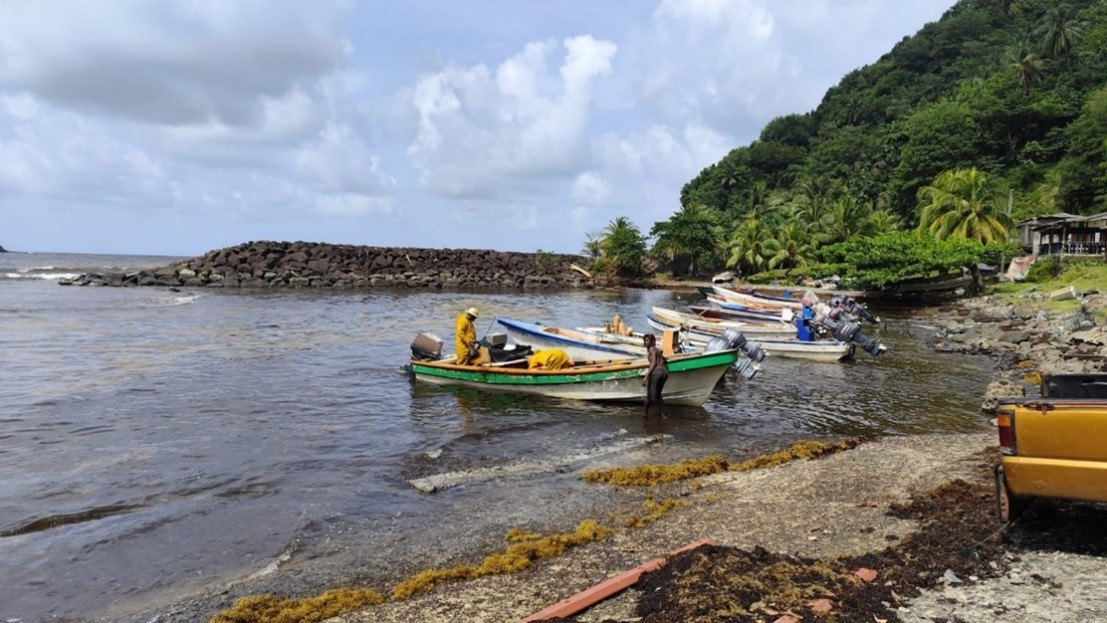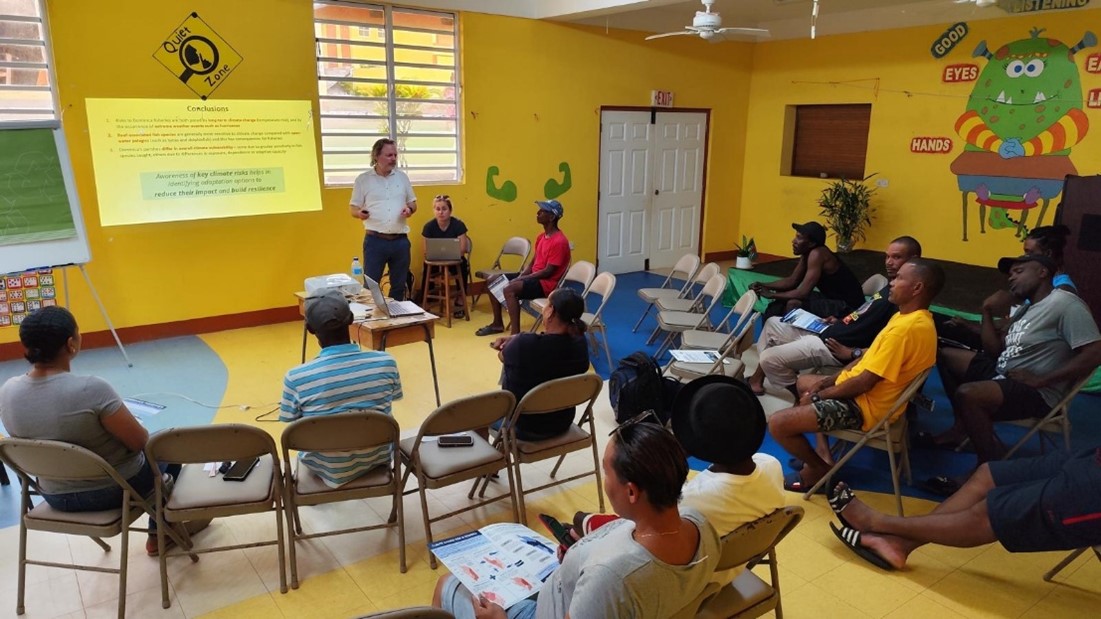Five coastal communities receive climate adaptation planning support
Scientific conference shares knowledge to build resilient blue economy
Dominican fishing communities will receive enhanced support to tackle climate change impacts threatening their livelihoods through a new initiative being delivered through the UK’s Sustainable Blue Economies Programme’s Technical Assistance Platform.
Dominica’s fisheries are at risk from both rising sea temperatures affecting fish stocks, and increasingly frequent and intense extreme weather events such as hurricanes. The aim of the project is to support Dominican fishing communities facing the impacts that threaten livelihoods across the country in increasing their resilience and preparedness to climate change. 
As part of the project researchers, policymakers and fishing stakeholders met at a mini scientific conference at Dominica Fisheries Division on 18th July to discuss climate vulnerability assessments and next steps. Topics discussed included reef fisheries assessment, coral reef conservation and marine environmental protection across the wider Caribbean region.
Commenting on the work, Simon Mustard, British High Commissioner to Barbados and the Eastern Caribbean said, “We are proud to support Dominica’s efforts to build climate resilience in its fisheries sector. These workshops are a vital step in empowering coastal communities with the knowledge and tools they need to adapt to a changing climate.”
Working together, scientists from the Centre for Environment, Fisheries and Aquaculture Science (Cefas), Dominica's Fisheries Division, and the Caribbean Regional Fisheries Mechanism are exploring practical adaptation strategies with key stakeholders.
The team worked directly with fishing communities in San Sauveur, Marigot, Portsmouth, Scott's Head and Stowe. These sessions identified key climate risks and explored realistic adaptation options to increase resilience in Dominica's fisheries sector.
Mr Derrick Theophille, Chief Fisheries Officer, Fisheries Division, Ministry of Agriculture, Fisheries, Blue and Green Economy, explained further, “With the support of Cefas, under the Sustainable Blue Economies programme, the Fisheries Department was able to reach fisherfolk in several communities here and share critical knowledge on our climate vulnerabilities. This also allowed us to learn from our fisherfolk how they have been adapting, what barriers they face, and what we can do to help. Overall, the intervention was a success and paves the way for future climate-mitigation and response actions at the national level.”
Stakeholders include fishers, processors, vendors, boat builders and mechanics from across the island who shared firsthand experiences of climate impacts during community workshops.
Dr. Georg Engelhard, principal scientist at Cefas, said “It is great to be back in Dominica and build on our work with the Fisheries Division, where we jointly identified the greatest risks from climate change and hurricanes to the country’s fisheries. And now, to share these outcomes with the fisherfolk themselves! We’ve received a lot of great feedback on their own experiences – and they are also very keen to learn from our assessment, as they all agree with us that climate change is really affecting their livelihoods.”
Co-researcher Olivia Harrod, Cefas, noted that adaptation of fisheries to climate change impacts will be essential to support livelihoods, coastal communities and the marine environment over coming years.
The initiative highlights the UK's commitment to climate-resilient development in SIDS, leveraging UK marine science expertise to co-create tools and strategies that safeguard marine resources and fishing livelihoods. It aligns with the UK Government’s broader support for international climate action and promotes sustainable marine resource management.
- Log in to post comments